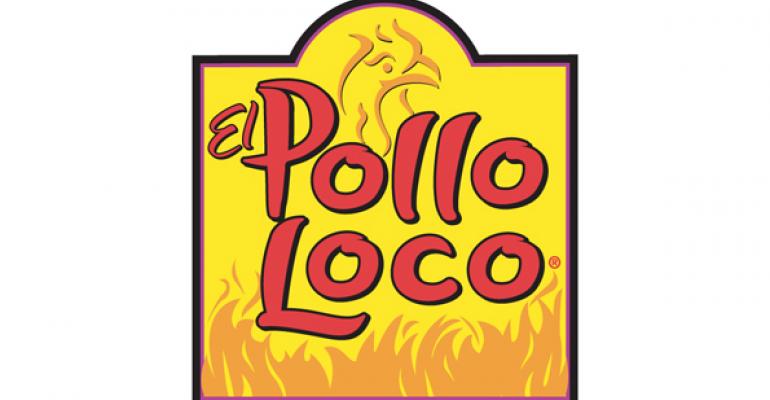Shares of El Pollo Loco Holdings Inc. soared in the first day of trading Friday, climbing to 66 percent by late afternoon.
The Costa Mesa, Calif.-based chain’s stock price opened at $19 per share, $4 higher than the $15 initial public offering price set the night before with the goal of raising $107 million to pay off debt.
By presstime, the stock price hit a high of $24.98 per share. The stock is trading on the Nasdaq under the ticker symbol “LOCO.”
After ringing the opening Nasdaq bell, Steve Sather, El Pollo Loco’s chief executive, said investors are responding to the brand’s positioning as “quick-service plus,” creating a new space somewhere between traditional fast-food concepts like KFC or Popeyes Louisiana Kitchen and fast-casual brands like Chipotle Mexican Grill and Panera Bread.
“We have the quality of food of fast casual, and a nice environment with the new Hacienda remodels,” said Sather. “But, on the QSR side, we offer that speed, convenience and value.”
RELATED
• El Pollo Loco prices IPO at $15 per share
• Domino’s credits same-store sales momentum for accelerated growth
• More restaurant finance news
El Pollo Loco, for example, has an average check per person of about $5.83, which is slightly above the typical quick-service chain, but about 15 percent below that of Chipotle or Panera, he said.
In addition, investors are responding to the chain’s improving financial position, said Sather.
Over the past three years, the chain has orchestrated a rebranding that has significantly upgraded the Mexican entrees that balance the menu around the signature citrus-marinated grilled chicken.
At the same time, the overhaul was designed to broaden the brand’s appeal to a more general audience, not just Hispanic.
The result has produced positive same-store sales growth in 11 consecutive quarters, with average unit volumes growing from $1.5 million in 2011 to $1.8 million at the end of 2013.
For the second quarter ended June 25, the company estimated same-store sales would be up between 4.9 percent and 5 percent, based on preliminary results.
For the March 26-ended first quarter, El Pollo Loco reported net income of $5.4 million, up from a loss of $60,000 a year ago.
The company is coming off three years of profit declines. In fiscal 2013, El Pollo Loco recorded a loss of $16.9 million, a loss of $7.9 million in fiscal 2012, and a loss of $32.5 million in 2011.
Currently, the 401unit chain operates and franchises in five states: California, Arizona, Nevada, Texas and Utah.
Company officials, however, see potential for 2,300 units across the U.S.
Sather said growth in the near term will focus on existing markets, where the company sees the potential for another 300 units in under-penetrated areas.
The Houston area will be the next growth market. The company has identified 80 potential trade areas for development there, both corporate and franchise locations, with the first to open later this year.
Some observers speculated that El Pollo Loco is benefiting from investor excitement over Chipotle’s stellar second-quarter results released earlier this week.
On Friday, Chipotle’s stock was trading at $672.19 per share, moving past the 52-week high of $667.90 per share.
Chipotle increased its traffic by more than 12 percent during the quarter, even after raising prices more than 6 percent.
Sather, however, said if anything, El Pollo Loco has benefited from Chipotle’s emphasis on better quality food.
“Consumers are demanding better food, and that’s why you’re seeing Chipotle up dramatically and McDonald’s essentially flat,” said Sather. “Those who give consumers a healthier product will be rewarded.
“That’s exactly where we’re positioned,” he added, “except we do it at a lower price and with the speed and convenience of QSR.”
Jefferies & Co., Morgan Stanley and Baird were the joint book-running managers on the deal.
Contact Lisa Jennings at [email protected]
Follow her on Twitter @livetodineout





